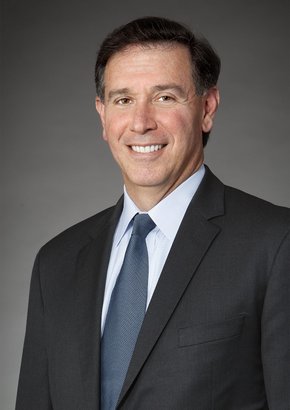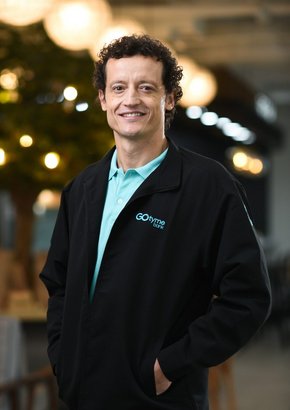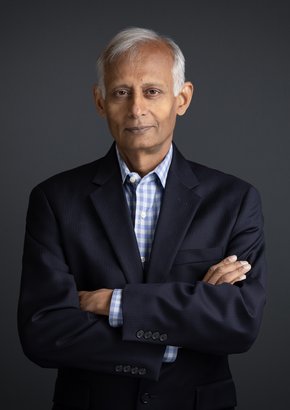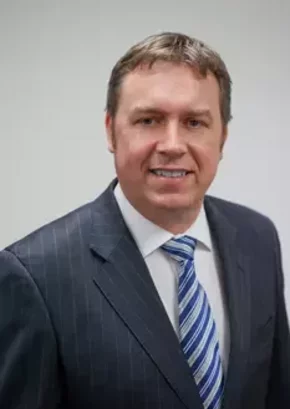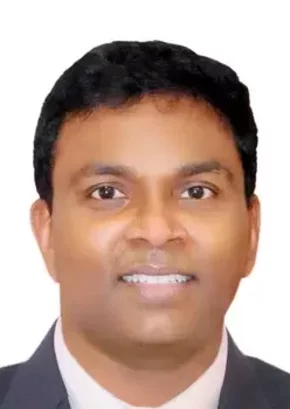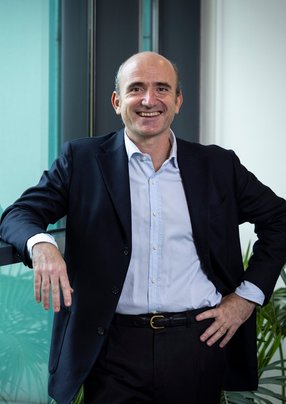
Eduardo Dávila
Not many leaders can say they’ve caddied for one of the greatest golfers of all time.
Eduardo Dávila has not only enjoyed the immense pleasure of accompanying Severiano Ballesteros around many of Spain’s stunning courses, but also succeeded in transferring practical experience from the professional golfing world to his career in business.
Dávila recently stepped up to become Senior Advisor to Aon CEO Greg Case, having previously served as a CEO himself, looking after the EMEA region. He is a firm believer that achieving business success goes hand in hand with prioritising loved ones.
“Without my family’s support, I wouldn’t be where I am today,” says Dávila. “While my children won't remember quarterly reports or business achievements, they will remember their dad being there on special days.
“It’s always worth reminding oneself to be present during those precious moments that shape our family bonds.”
Progressing through the ranks
Dávila spent four years in banking as an Investment Advisor with BBVA before joining Aon in 2002 to become Director of Corporate Business in Spain. Over the years he progressed through the ranks to lead the company in Portugal, Iberia and the Middle East, before taking the reins for the EMEA region in 2021 and becoming Senior Advisor to Case in November of this year.
These days, the organisation’s core activities are focused on the two primary categories of client need: risk capital, including commercial risk and reinsurance, and human capital, encompassing health, wealth and talent.
“We help our clients shape business decisions for the better,” explains Dávila. “We work with our clients, providing them with the advice and solutions that give them the clarity and confidence to make better decisions to protect and grow their businesses.
“Our collaborative approach ensures every Aon client is better informed, better advised and able to make better decisions on a global and local level.”
Dávila makes no bones about the various obstacles he encountered in his last job as CEO for EMEA.
Simply being in charge of such a diverse region, with countless geographies, cultures and markets, is a trial in itself, but he attempts to view it in a positive light.
“The greatest challenge for me is building something that is greater than the sum of its parts,” he continues. “EMEA is a very heterogeneous region and finding a way to work as one united team, to explore the synergies between geographies, solution lines and client segments, is equally a challenge as it is an opportunity.
“The opportunity lies in getting the team to a common mindset – where the ‘we’ is more important than the ‘me’ – with real belief and determination.”
Leading from the front
While plenty has changed at Aon since Dávila joined more than two decades ago, much has stayed the same
Its overarching strategy, for example, remains underpinned by the Aon United Blueprint, which guides company culture and values.
Ultimately, Aon United informs the way colleagues work together and scale more specific strategies across the firm to deliver value to clients.
However, Dávila adds: “The way in which we have helped them [clients] has evolved over time, as their needs regarding both risk and human capital have changed. We’re on a constant evolution to meet the changing needs of our clients to best serve them.”
In ensuring employees stay true to Aon’s all-important values, Dávila chooses to adopt an empathetic leadership style, assuming a role which is more akin to teammate or mentor than boss – fostering a culture of learning in the process.
“Our team is more than a group of co-workers; it’s like a family,” he goes on. “Within our family, we talk openly and have created a sense of shared success.
“I ensure I make time to foster relationships with my colleagues, supporting them to deliver their best work and motivating them through the good and the bad. I firmly believe we can all learn from each other.”
Another quality Dávila looks to maintain is consistency, which begins with simply showing up every day in an effort to build meaningful relationships with peers and allowing his strengths and weaknesses to be known by his team.
“Other qualities that I believe are critical to leadership include being respectful, proactive, having patience and being a good listener,” he asserts. “As a leader, it’s important to know when to share advice and to have the courage to do so.
“Listening is the ultimate leadership skill. It helps you navigate difficult situations, find solutions and provide support when it’s most needed.”
A ‘dream come true’
Dávila looks back with fondness at his golf-oriented upbringing.
Influenced by his father – “a skilled golfer and a true mentor to me” – he first picked up a club at the age of six and is still playing to this day.
Over the years, Dávila was fortunate enough to get to know some of the tour professionals, Seve Ballesteros being one of them.
“In 1996, I started following him [Ballesteros] around the course at 6am, five or six days a week, just to watch him play,” he explains. “He didn’t utter a single word to me until one day, when we got to the final green, he asked me why I’d been watching him.
“It was this interaction that led to him inviting me to play with him the next day. It was a dream come true and we met at the sixth hole of the Pedreña golf course in Cantabria, Spain.”
The Dávila and Ballesteros families quickly became firm friends, with Eduardo and Seve playing golf together on a regular basis.
When Ballesteros was unable to attend Dávila’s wedding in the summer of 1999 due to his participation in The Open, the five-time major champion compensated by inviting his friend to caddie at a subsequent matchplay tournament in Galicia, which saw him face off against a fellow legend of the sport, Gary Player, no less.
Caddying for clients
Dávila draws plenty of parallels between his time as a caddie and tenure as a business leader, to the extent that he now sees himself as a caddie for clients, reinforcing a culture of guidance and partnership.
“The role of a caddie is all about what they can do for a player,” he concludes. “They are responsible for thinking about all the elements impacting their decision, such as the wind direction, where the bunker is and the position of the green.
“My commitment to our clients is very similar to this – a close-knit partner who is there to scan the environment, look out for potential challenges and provide support and guidance on the best way forward.
“One of the ways we do this is through harnessing data in risk and human capital. Our clients make the decisions and take the shot but, ultimately, we both have responsibility over the outcome.”
Featured Interviews
“It's very different recruiting people for something you're building from scratch, compared to recruiting for something that is already running.”

